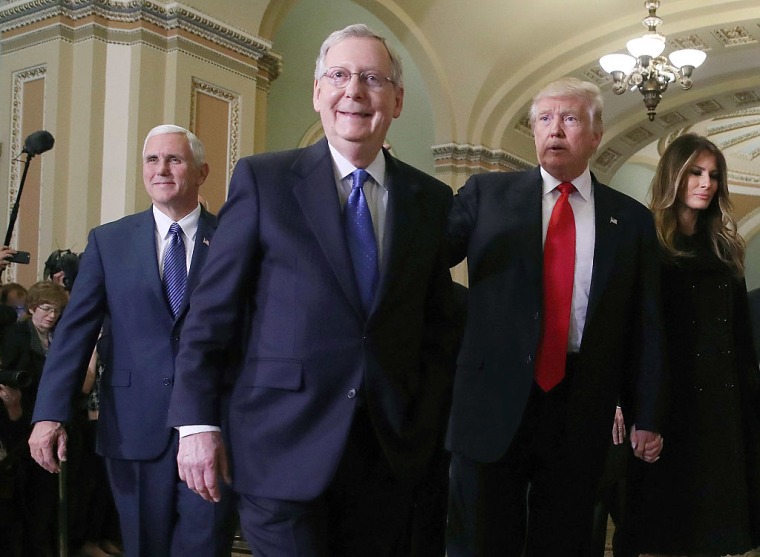 Senate Majority Leader Mitch McConnell walks with President-elect Donald Trump, his wife Melania Trump, and Vice President-elect Mike Pence, at the U.S. Capitol in Washington, DC. November 10, 2016.
Photo by Mark Wilson for Getty Images
Senate Majority Leader Mitch McConnell walks with President-elect Donald Trump, his wife Melania Trump, and Vice President-elect Mike Pence, at the U.S. Capitol in Washington, DC. November 10, 2016.
Photo by Mark Wilson for Getty Images
22 million fewer people will have insurance by 2026 if the Republican's health bill, the Better Care Reconciliation Act, passes the senate, according to a new analysis from the nonpartisan Congressional Budget Office.
The number of uninsured Americans is close to the CBO's projections for the House's health bill, which Republicans assured would be moderated in the senate. However, Majority Leader Mitch McConnell has crafted a bill that appeals more to his party's conservative wing: if passed, the BCRA will cut $772 billion dollars from Medicaid over ten years and repeal billions in taxes on wealthy Americans and health insurance companies.
At least three Republican senators must join the senate's Democrats in voting no for the bill in order for it to be defeated. Five GOP senators have pledged not to vote for the bill without significant changes, though it's widely expected that some will defect to a "yes" as negotiations continue. But they face a hard deadline: McConnell is pushing for a vote to be held before the July 4 recess.
From its secretive, backroom crafting to the bill itself, the Senate's health plan has been roundly condemned. The American Medical Association blasted the bill on Monday, saying, "Medicine has long operated under the precept of primum non nocere, or ‘first, do no harm.’ The draft legislation violates that standard on many levels.”